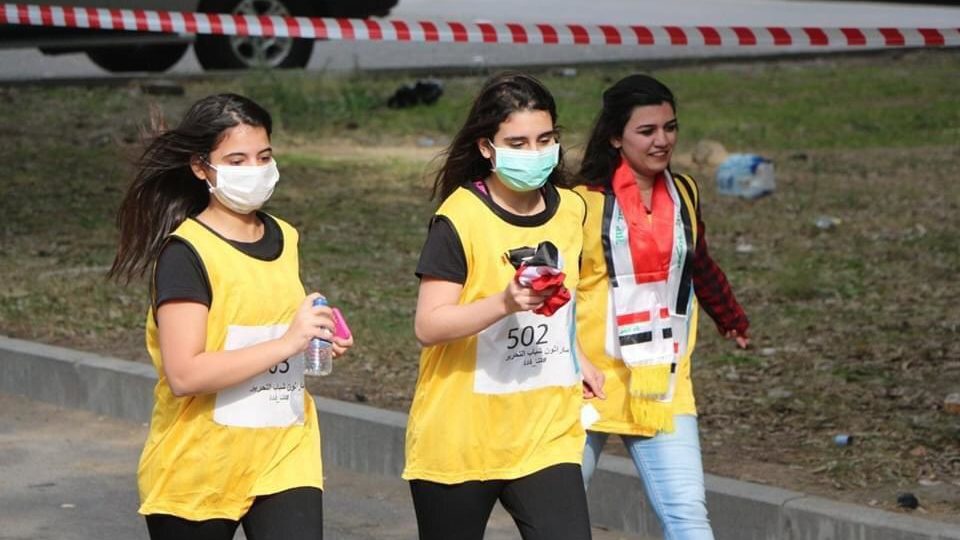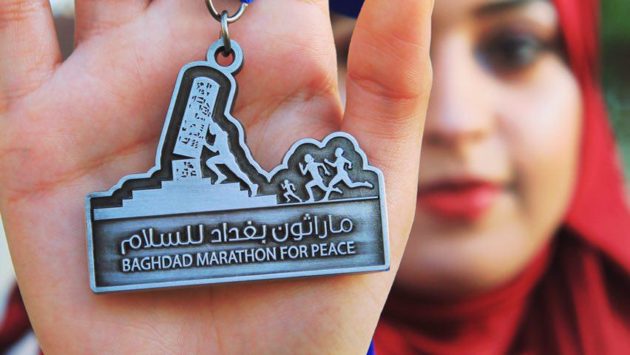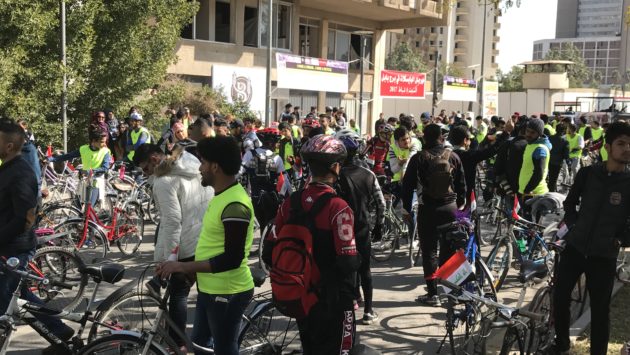“Sports Against Violence” Organizes a Webinar to Discuss Women’s Sports in Iraq
Supporting and encouraging women’s sports is about far more than promoting the importance of physical activity, it also includes cultural and developmental elements. Women’s sports promote powerful social messages that advance women’s rights and freedom beyond a theoretical level to a level of practical application and behavioral practice. From this perspective, the “Sports Against Violence” organization, in cooperation with the “She Revolution” group, and under the umbrella of the Iraqi Social Forum, organized a webinar to discuss the experience of women’s sports in Iraq, the future of their development and opportunities to empower women engaged in sports. About 40 activists, journalists, and specialists of both genders participated in the webinar.
At the opening of the webinar, captain Samir Saad, the coach of the “Belady” women’s football team, presented a summary of the greatest obstacles women’s sports face in Iraq today. He explained how lack of support leads to future obstacles to advancing these sports and increasing women’s participation. Samir also presented a comparison showing the social and humanitarian benefits of supporting women’s sports, based on an experience he had in one of the European countries. Samir stressed the need to start the development of women’s sports at the elementary school level, while he also urged the reactivation of physical education lessons for all.
From a legal point of view, Dr. Bushra Al-Obaidi, a professor at Baghdad University, explained that the Iraqi constitution guaranteed the right to practice sports activities for both genders alike, and that Article 36 explicitly states: “The practice of sport is a right for every individual, and the state must encourage and support its activities, and provide its requirements.” Article 36 of the constitution clearly does not specify which gender is permitted to practice sports activities, as that is a right for everyone freely and without restrictions. However, due to social customs, sporting activities have been restricted to males, either because of habits that push families to deprive girls, or because the sports system is not capable of involving women’s energies and does not provide them with an appropriate environment to practice their activities.
In its final part, the webinar moved to a discussion of mechanisms that would reduce discrimination in sports. Yasmin Falah, the coordinator of the “She Revolution” group, explained the importance of including concepts of gender equality in the sports system, as a first step to reforming the experience of women’s sports. The webinar ended with a set of recommendations that would help in the development of women’s sports.
It is noteworthy that this webinar was part of a series of digital events organized by the “Sports Against Violence” organization to raise awareness of the importance of using sports as a tool for peace building, advocating against violence and promoting gender equality.




